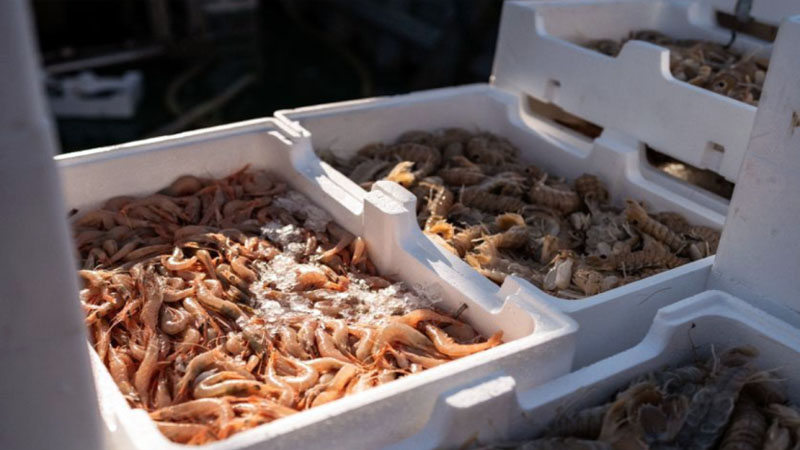Exclusive content

The Confederation of Aquaculture Organizations of the State of Sinaloa (COADES) is gearing up to enforce protective measures granted by the seventh district court to curb the influx of smuggled shrimp into Sinaloa. Despite assurances from the federal government to regulate the entry of marine products, the illicit flow continues, resulting in unfair competition. Carlos Urías Espinoza, leader of COADES, expressed disappointment over the partial fulfillment of the court’s directive, as foreign shrimp products continue to infiltrate Sinaloa’s markets, including local restaurants.
Uncertainty Looms Over Shrimp Farming Season
Shrimp farms in Sinaloa have commenced planting activities, but the season kicks off with uncertainty. Only 60 percent of the farms have initiated operations due to financial concerns stemming from the previous cycle’s impacts. César Abraham Cuadras López, president of the State Aquaculture Health Committee of Sinaloa, highlighted the significant reduction in planted hectares, estimating a decrease from 90,518 to just over 50,000 hectares. This decline is attributed to financial strains caused by the aquaculture sector’s recent bankruptcy.
Riverside fishermen in Guasave’s Boca del Río area have raised alarms over the rampant exploitation of shrimp during their reproductive stage. Despite ongoing activities by at least 12 sardine boats, authorities have yet to intervene. Emilio Valenzuela López, president of the Las Abejas cooperative, lamented the recurring damage inflicted on the ecosystem, adversely impacting fishing communities and resulting in poor production over the past three years.
Preparations for Shrimp Ban Amidst Fishing Challenges
As the impending shrimp ban, effective March 20, approaches, complaints surface within the bay and high sea fishing sector. While acknowledging the season’s unfavorable conditions, fishermen are compelled to maximize shrimp catches before the ban’s enforcement. Fishing cooperatives’ leaders, Alfonso Chaparro and Leonel Sánchez, urge adherence to the ban, emphasizing its importance for future production and overall industry sustainability.